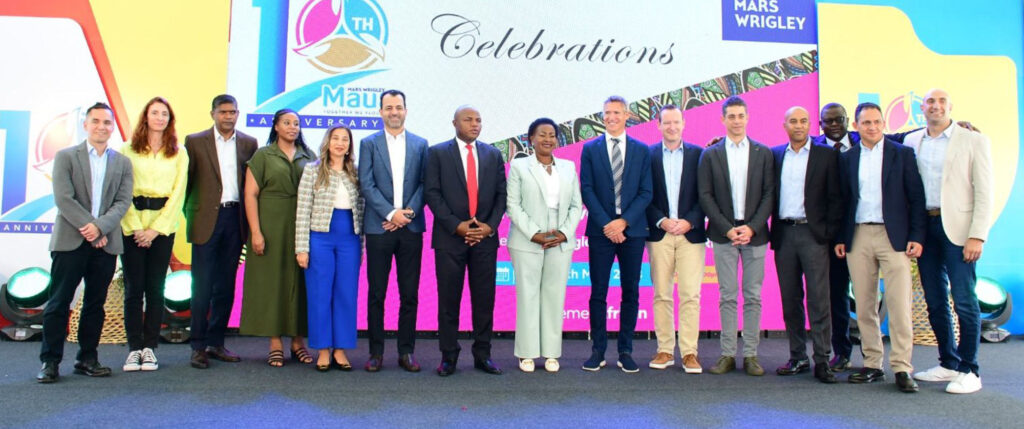
Mars Wrigley Maua Initiative Powered by EoM Celebrates 10 Years
A New Business Model Blueprint
Maua was one of the first EoM pilots and was the first EoM-created Route-to-Market (RTM) business using non-financial KPIs (Key Performance Indicators), such as Social and Human Capital, and a hybrid value chain approach partnering with citizen sector organizations rather than traditional master distributors.
Launched in 2013 with 300 entrepreneurs, it was reporting double-digit growth by 2014 and has since scaled to include 1,600 entrepreneurs countrywide. The program’s impact is set to extend further with a plan to add 1,000 additional entrepreneurs by the end of 2023.
Moreover, following the success of Maua in Kenya over the last decade, Mars Wrigley will be expanding the program into nearby Tanzania in 2024 and Rwanda in 2025. The company is also planning to deploy business models based on Maua within other emerging markets in Egypt, the Philippines (where Maua was previously tested under the program name ‘Bloom’), India, and Mexico.
——
Through our Maua program, we partner with micro-entrepreneurs and micro-distributors to sell our products in low-income areas. By expanding Maua, we aim to build Financial and Social Capital, empowering individuals passionate about business and improving lives.
FABIANO LIMA
Global Vice President Corporate Affairs, Mars Wrigley
Investing in Human and Social Capital
Using the EoM approach to mutual value creation, Maua combines the business goal of creating new routes to market with the social goal of improving the income and wellbeing of people within developing communities. It expands the distribution of Mars Wrigley products by engaging local entrepreneurs in areas where issues such as inadequate public infrastructure make it difficult to reach customers directly.
Uplifters and hawkers in impoverished communities gather products from participating stock points. The uplifters distribute to kiosk owners and other small-scale vendors. The hawkers sell directly to the consumer. The program allows the entrepreneurs to carry other brands alongside Mars Wrigley products, which increases the value they offer to the community.
In this way, Maua engages the non-financial capital present, but typically hidden, within areas that lack infrastructure and investment. By measuring and managing Human and Social Capital alongside Financial Capital, the program is able to benefit all stakeholders.
Cross-sector partnerships with citizen sector organizations and NGOs have made the Maua business model possible by helping Mars Wrigley tap into typically overlooked cultural and social assets. And research with Oxford University’s Said Business School and the University of Nairobi has enabled the program’s leaders to measure success and impact effectively.
——
The entrepreneurs who sign up to Maua benefit economically by partnering with us. We also provide support in terms of training, branding, merchandizing, tools of the trade, and networking opportunities that include connections to financing partners.
DUNCAN MCCULLOCH
General Manager, Middle East and Africa, Mars Wrigley
Delivering Holistic Performance
Maua now accounts for close to 15% of Mars Wrigley’s turnover in Kenya, with a higher profit margin than its traditional routes to market. Indeed, it is more profitable than comparable businesses operating with the usual profit-maximization approach, sometimes delivering 2x higher retained earnings than such businesses, while also seeing measurable gains in the development of Human and Social Capital, all while overcoming the challenges of working in highly challenging environments for commercial activities.
A consistent retention rate of 85% indicates Maua’s ability to deliver sustainable livelihoods for entrepreneurs living within city slums and deprived rural areas. And the fact that 40% of the entrepreneurs are women demonstrates how the initiative creates work for those typically denied such opportunities.
Entrepreneur Success Stories
Elly Odongo, an uplifter from Nairobi’s largest slum, joined Maua in 2014 with 2,000 Kenyan shillings (around $17.50) in seed capital to buy stock. By late 2021, he had increased his income more than tenfold, and now earns roughly $220 a month by selling Wrigley products alone.
On his Maua journey, Odongo has invested in expanding his distribution area. “I used to walk and carry a pack,” he says. “With time, I acquired a bicycle and then a motorcycle. Now I can get more customers.” He moved from the slums into a mud house, married and had a child. “I’m now also able to support my siblings and my parents back home,” he says. He hopes someday to take on a stock point role to introduce others to the uplifter opportunity.
Mercy Makena, who acts as a stock point around 10km from central Nairobi, shows how far Maua could eventually lead uplifters like Odongo. Makena and her husband started a small general goods store before joining Maua in 2017, and began by allocating capital of 20,000 shillings ($175) to buying Wrigley products as a stock point.
Makena’s business now spends around $7,000 every month on Wrigley products to on-sell to uplifters. She shares Odongo’s motivation to extend opportunity to others. “I benefit with Maua, so I can get more uplifters and they can change their lives by investing through this project,” she says.
Those who attended the 10th anniversary celebration remarked how personal success stories such as these left them feeling inspired – and also excited to see how Maua will continue to flourish in the coming years.



